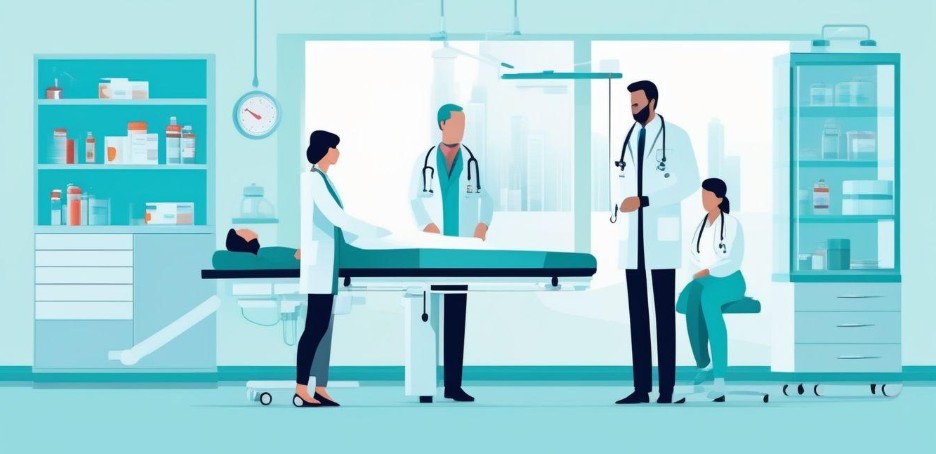The Important Role Allied Health Assistants Play in Rehabilitation
The Important Role Allied Health Assistants Play in Rehabilitation
Allied Health Assistants (AHAs) are vital players in the healthcare team… contributing significantly to the rehabilitation process of patients across various settings.
With their unique skill set and supportive roles, AHAs help bridge the gap between patients and more specialized health professionals.
They facilitate a smoother recovery journey.
Their contributions enhance patient outcomes and ensure that healthcare providers can focus more on diagnostic and treatment responsibilities while maintaining a high standard of care.

Understanding the Role of Allied Health Assistants
Allied Health Assistants work alongside a range of healthcare professionals, providing important support to occupational therapists, physiotherapists, speech pathologists, and other specialists. While their primary duties vary depending on the specific rehabilitation setting, the core of their work revolves around assisting in patient care and ensuring continuity in treatment plans.
AHAs often take on tasks such as conducting therapy sessions, preparing treatment areas, and helping patients with exercises. This hands-on contribution is vital for maintaining the flow of rehabilitation and allowing patients to feel engaged in their recovery journey.
The role of AHAs extends beyond direct patient contact. They play a part in administrative duties that help facilitate accurate documentation of patient progress and treatment effectiveness.
Their involvement can significantly enhance communication between the healthcare team and the patients themselves. As these professionals are often the first point of contact for patients, they can provide comprehensive health support by conveying important information and patient feedback to the primary therapists, promoting an integrated approach to care. Allied Health Assistants often help educate patients and their families about therapy routines and at-home exercises, improving long-term outcomes.
They contribute to the efficiency of clinical operations by ensuring resources are well-organized and sessions run smoothly. Through their dedicated work, AHAs help reduce the workload of specialists, allowing for more personalized and effective patient care.
Enhancing Patient Experience Through Support
The presence of Allied Health Assistants in rehabilitation settings can dramatically improve patient experience.
One of the key factors in recovery is the emotional and mental state of the patient, which AHAs can positively influence through their interactions.
- They spend considerable time with patients, providing the motivation needed to adhere to rehabilitation protocols.
- AHAs can reduce recovery-related anxiety by building rapport with patients and making the setting more pleasant.
AHAs often engage in one-on-one interactions, offering encouragement and personalized attention that can lead to improved compliance with treatment plans. Their role extends to educating patients and their families about the rehabilitation process, expectations, and strategies for success. Their ability to simplify complex medical terminology into understandable concepts empowers patients, fostering a sense of involvement in their own care.
Streamlining Communication Among Healthcare Professionals
Effective communication is key in healthcare, and AHAs serve as an important link in the information chain among professionals. AHAs make sure that everyone is on the same page when it comes to patient care by providing therapists and other healthcare professionals with critical patient updates.
This ability to relay information can be vital in adjusting treatment plans promptly, based on a patient’s needs and progress.

The collaborative nature of rehabilitation means that AHAs often participate in team meetings where they provide insights on patient behavior and response to therapies.
Their observations can lead to a more nuanced understanding of patient needs, contributing to highly tailored treatment strategies. This collaborative communication improves outcomes and enhances the efficiency of the rehabilitation process.

Preparing Patients for Success in Rehabilitation
Preparation is fundamental in any rehabilitation journey. AHAs engage patients in preparatory activities that set the stage for successful rehabilitation. This may include:
- Educating them about the rehabilitation process
- Giving insights into expected challenges
- Discussing strategies to overcome them
- Recommending additional support they may need
Such preemptive guidance is vital in reducing uncertainties that can hinder patient motivation.
AHAs help patients set realistic goals that encourage them to progress through their rehabilitation journey actively. Patients are inspired to keep moving ahead by the sense of success they get from setting attainable goals. This proactive approach fosters a mindset geared towards improvement and resilience, important qualities for effective rehabilitation.
Challenges Faced by Allied Health Assistants
Despite their critical role, AHAs face several challenges in their practice. One major challenge is the varying levels of recognition and understanding of their contributions within the healthcare team.
There are instances where their input may go unappreciated or be undervalued, leading to a decrease in team cohesion. This lack of recognition can impact their job satisfaction and the effectiveness of the rehabilitation process.
Another significant challenge is the constant need for professional development and training…
The healthcare field is ever-evolving, and AHAs must stay up-to-date with the latest practices, technologies, and patient care methodologies.
This requires investment in ongoing learning opportunities, which are critical for them to provide the best support possible. Addressing these challenges through clear communication and recognized training programs will help maximize their contributions further.
Allied Health Assistants play a pivotal role in rehabilitation by providing support, enhancing patient experiences, and facilitating communication within healthcare teams. Their contributions lead to improved patient outcomes and smoother recovery processes. As healthcare continues to evolve, recognizing and investing in the role of AHAs will be important to achieving a collective goal of optimal patient care.

